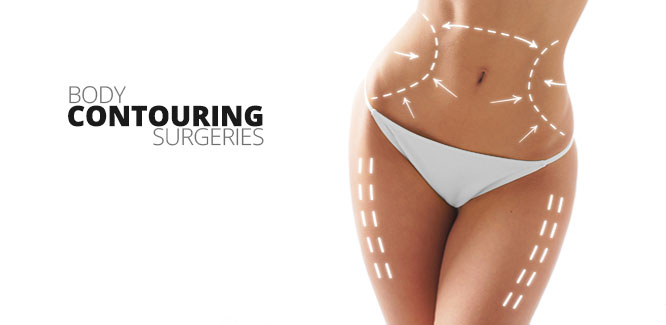Thanks to bariatric surgery, obese patients now have an efficient tool to reach a normal weight, live a healthier and longer life. You’ve probably read somewhere that weight loss can leave excess skin behind, but it is in fact weight gain that stretches the skinto the point that it can’t retract when an individual’s weight goes back to normal. That’s why body contouring is often considered by doctor Balti’s bariatric patients after dramatic weight loss.

What causes massive weight loss ?
In most cases, massive weight loss is the result of bariatric surgery designed to limit calorie intake and / or absorption. This type of procedures includes gastric bypass, gastric sleeve, gastric banding as well as other more or less invasive surgeries.
Less often, overweight individuals manage to lose weight by following simple dietary guidelines and exercising regularly.
Major weight loss & skin
Fat excess can accumulate around the organs and under the skin. Since the skin is ‘holding’ this fat, it stretches to adapt to a bigger fat tissue volume. However, despite its great elastic properties, the skin’s capacity is often exhausted by weight gain. The skin’s distension becomes visible after weight loss with excess skin in areas previously storing excess fat and stretch marks which are essentially fractures of the dermis.
Body contouring after weight loss
Why should I request a body contouring procedure after weight loss ?
Cosmetic surgery can address the permanent skin distension by removing excess skin, it can also remove fat to reshape areas where fat deposits persist despite weight loss.
When is the right time to undergo this type of surgery ?
Ideally, patients need to reach a healthy weight and stabilize it for 6 to 12 months before requesting a body contouring procedure.
What precautions are there ?
Cases of massive weight loss require a dietary follow-up to avoid nutritional deficiencies. When left untreated, these deficiencies can cause wound healing problems after surgery, contribute to infection and increase the risk of complications / poor recovery.
It also crucial for smokers to stop smoking 6 weeks before and after surgery to avoid more serious complications (infections, necrosis, etc.).





